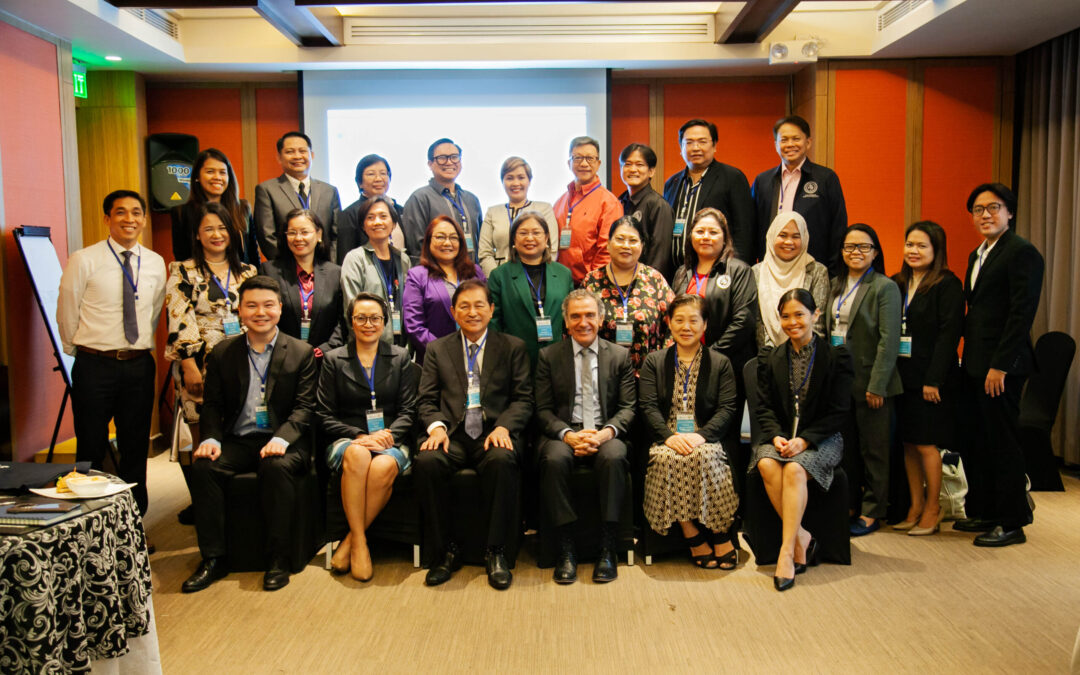
Dec 7, 2023 | Events, News
On 5 – 6 December 2023, the International Commission of Jurists (ICJ) co-organized a workshop, with the Department of Justice (DOJ) of the Philippines, on ensuring the protection of human rights in the online sphere under international human rights law.
The workshop was aimed at enhancing the capabilities of public prosecutors to integrate into their work the relevant international human rights law and standards pertaining to human rights in the online space.
“More than forty percent of our time each day is now spent connected to the internet. This has changed our lives. New technologies have also engendered new challenges for the fulfilment of human rights,” stressed Santiago Canton, ICJ Secretary General, during his opening remarks. “International human rights law provides the framework for us to better understand and respond to these new developments.”
Expert international and Filipino participants reaffirmed the pivotal role that public prosecutors play in protecting and promoting human rights in the digital sphere.
“This workshop was scheduled to coincide with the National Human Rights Consciousness Week in the Philippines, and the inauguration of the DOJ’s Human Rights Office, as part of our efforts to integrate human rights-based approaches into our prosecutorial work,” said Prosecutor Hazel C. Decena-Valdez, OIC Senior Deputy State Prosecutor, Department of Justice, noting the particular timeliness of the workshop in her opening remarks.
Participants raised concerns about human rights violations and abuses perpetrated in digital spaces, including the particular risks experienced by individuals from certain groups, such as children and women.
“The risks of violations or abuses of children’s rights in the digital environment include exposure to unlawful or harmful contents, and online bullying, threats, attacks, punishment, censorship and digital surveillance,” highlighted ICJ Commissioner Mikiko Otani, Former Chair of the UN Committee on the Rights of the Child. “The role of prosecutors in securing the rights of the child in digital environments is very important, by holding perpetrators of violations accountable, and protecting child victims from secondary victimization.”
The participants discussed the numerous challenges they face when prosecuting cases impacting human rights in the digital space, and mapped out how to better integrate international human rights law and standards into their investigatory and prosecutorial work in order to ensure access to justice and effective remedies.
Some of these challenges include how to: handle criminal cases based on domestic laws that conflict with international human rights law; ensure that there is accountability for violations and abuses of human rights online; and prevent biases and stereotyping, such as those based on gender, when investigating and prosecuting cases.
“Prosecutors should ensure that they develop protocols to help eradicate structural gender bias, and ensure gender-responsive approaches to their work. This includes preventing revictimization and ensuring confidentiality when handling cases,” underscored Melissa Upreti, ICJ Regional Director for Asia and the Pacific. “Online violence should not be distinguished as a lesser crime, and the human rights implications of online gender-based violence must be fully recognized.”
Contact
Melissa Upreti, ICJ Regional Director, Asia and the Pacific, e: melissa.upreti@icj.org
Daron Tan, ICJ Associate International Legal Adviser, e: daron.tan@icj.org
Caleen Obias, ICJ National Legal Consultant, e: caleen.obias@icj.org
Background
The workshop was attended by 22 public prosecutors from the Department of Justice.
The key thematic issues discussed during the workshop were:
- The right to online freedom of expression and information;
- Domesticating international human rights law;
- Protecting children’s rights online;
- Protecting women’s rights online; and
- Court technologies, access to justice and impacts on the right to a fair trial.
The speakers at the workshop were:
- Santiago Canton, Secretary General, ICJ;
- Prosecutor Hazel C. Decena-Valdez, OIC Senior Deputy State Prosecutor, Department of Justice;
- Justice Adolfo Azcuna, ICJ Commissioner; Justice, Supreme Court (Ret.); Chancellor Emeritus, Philippine Judicial Academy;
- Mikiko Otani, ICJ Commissioner; Member and Former Chair, UN Committee on the Rights of the Child;
- Melissa Upreti, Regional Director for Asia and the Pacific, ICJ; and
- Atty. Oliver Xavier Reyes, Senior Lecturer, University of the Philippines College of Law.
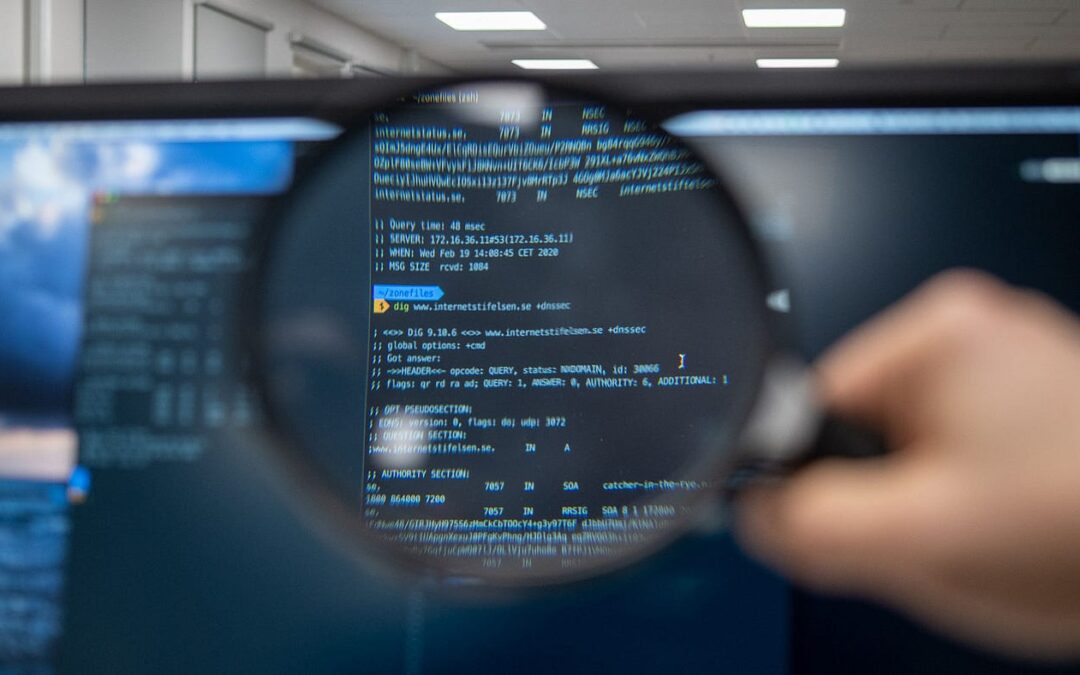
Oct 2, 2023
The International Commission of Jurists (ICJ) and Access Now sent a joint letter and an accompanying legal analysis to Cambodia’s Ministry of Post and Telecommunications and Ministry of Justice, calling for the withdrawal or substantial amendment of its Draft Law on Cybersecurity to bring its provisions in line with international human rights standards.
The draft law, if adopted, would likely undermine the rights to privacy and freedom of expression, while also risking personal security and exposing people to increased cyber threats.
“The Draft Law would require government licenses of cybersecurity services – an excessive provision that would hamper the ability of people and businesses in Cambodia from being able to secure themselves against intrusion into their networks and safeguard their data,” said Golda Benjamin, Asia Pacific Campaigner at Access Now. “Cambodia wants this draft law to deal with malicious cyber activities but in its current form, it will only create a new problem of having a cybersecurity landscape that imposes unreasonable administrative burdens to organizations, including small and medium enterprises and civil society.”
In the legal analysis attached to the joint letter, Access Now and ICJ point out that the vaguely worded and sweeping provisions in the Draft Law may be abused to allow government cybersecurity inspectors overbroad access to private data. It fails to provide for safeguards, but instead would grant a newly created body of cybersecurity inspectors immense power to investigate, observe, monitor, prevent and respond to cybersecurity threats and incidents. The Draft Law also fails to make provision to ensure that cybersecurity inspectors are properly qualified.
“These proposed arrangements are a recipe for executive abuse, especially given that the bill fails to provide for any independent or effective oversight or remedial mechanism to serve as check on governmental conduct and safeguard against any potential overreach,” said Ian Seiderman, Legal and Policy Director at the ICJ. “If this legislation is put forward for adoption, it needs to amended to correct these deficiencies and comply with Cambodia’s international legal obligations and rule of law principles.”
Access Now and ICJ urge Cambodia to strengthen their cybersecurity landscape to deal with malicious cyber activities and ensure that any law, policy, or practice to implement this goal complies with the country’s international human rights obligations. Effective cybersecurity requires a human-centric and human rights respecting approach.
Download
Read the joint letter here, and the joint legal analysis of the Draft Law on Cybersecurity here.
Contact
Daron Tan, ICJ Associate International Legal Adviser, e: daron.tan@icj.org
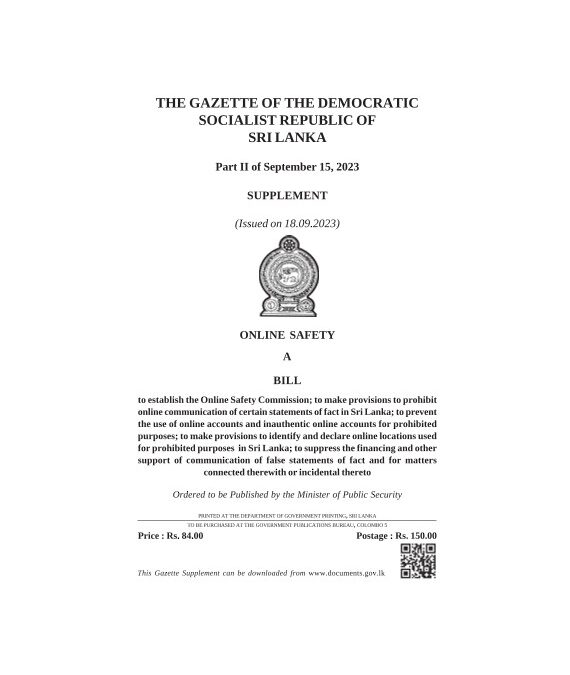
Sep 29, 2023 | News
The ICJ is concerned that the newly proposed Online Safety legislation, if adopted in its present form, would serve to crush free expression and further contract an already shrinking civic space in Sri Lanka.
On 18 September 2023, the Ministry of Public Security gazetted a bill titled “Online Safety” intended to dramatically regulate the content of online communication, including by the general public.
The ICJ considers that several provisions of the bill would serve to undermine the exercise of human rights and fundamental freedoms in the country, including freedom of information and expression. Of particular concern are provisions related to the setting up, appointment and functions of an Online Safety Commission and other experts, the vague and overbroad wording of conduct designated as punishable offences and unnecessary and disproportionate punitive sanctions.
“While the spread of online hate-speech and disinformation need to be tackled, this bill is deeply flawed in its design and would be open to abuse by the Sri Lankan government, which has persistenty failed to uphold freedom of expression,” said Ian Seiderman, ICJ’s Legal and Policy Director. “It risks being used to suppress important public debate regarding the conduct of the government and matters of public policy,” he added.
The Bill would establish an “Online Safety Commission” that would act to: “prohibit online communication of certain statements of fact; prevent the use of online accounts and inauthentic online accounts for prohibited purposes; make provisions to identify and declare online locations used for prohibited purposes in Sri Lanka and to suppress the financing and other support of communication of false statements,” as well as other unspecified matters.
The Bar Association of Sri Lanka has called for the immediate withdrawal of the bill and for the adoption of a process of meaningful consultations with all relevant stakeholders prior to gazetting bills which ‘have a serious impact on the community at large.’
“The current draft fails to adhere to the principles of legitimacy, necessity and proportionality required for any State activity that restrict rights. It must be withdrawn or amended to be brought in line with Sri Lanka’s international human rights obligations guaranteeing freedom of expression, opinion, and information.” Seiderman added.
The ICJ considers that the Bill should not be evaluated in a vacuum, but instead must be read in conjunction with existing and proposed legislation that threaten human rights. Such laws include the extremely misused ICCPR Act of 2005, the Prevention of Terorrism Act (PTA), the Bureau of Rehabilitation Act, and the proposed Anti-Terrorism law which seeks to replace the PTA. This body of legislation, taken together, fosters a chilling effect on the exercise of fundamental freedoms restricting civil society while unduly expanding the reach of the security state.
Article 14 (1) (a) of the Sri Lankan Constitution gurantees the freedom of speech and expression. Article 19 of the International Covernant on Civil and Political Rights, to which Sri Lanka is a party, affirms the right to freedom of expression and opinion.
In July 2018, the UN Human Rights Council adopted by consensus a resolution affirming that “the same rights that people have offline must also be protected online, in particular freedom of expression, which is applicable regardless of frontiers and through any media of one’s choice, in accordance with articles 19 of the Universal Declaration of Human Rights and the International Covenant on Civil and Political Rights.”
Contact: Ian Seiderman, Legal & Policy Director, e: ian.seiderman@icj.org
See annexed below a summary analysis of some problematic aspects of the Online Safety Bill.
Sri Lanka: Selected flaws in the Online Safety Bill
- Wide ranging and overly broad powers of the Online Safety Commission and appointed Experts
The bill provides for the establishment of a five-member ‘Online Safety Commission’ that is to be appointed on the sole discretion of the President (clause 5). This is in contrast to other notionally independent commissions in Sri Lanka, the appointments to which require the consent of the Constitutional Council by way of nomination or ratification. This bill would give the president unfettered discretion where both appointment and removal is concerned.
The Commission would also be vested with a wide range of powers, some of which encroach into the functions of the judiciary. It essentially acts as sole arbiter of matter of fact and is entitled to issue notices or directives against any person, internet service provider (ISP) or internet intermediaries who/which is alleged to have communicated a prohibited or false statement. The bill does not specify the process through which the Commission would arrive at this decision.
Moreover, the Commission is granted authority to block websites and instruct ISPs to restrict access to specific online locations. This may result in undue government overreach and censorship and impermissible limitations on the exercise of the right to information protected by Article 14A of the Constitution and international law.
Further clause 37 allows for the Minister to appoint ‘Experts’ to assist police officers in investigations. The experts are private individuals who can accompany police officers during search procedures, but are also given the power upon authority granted by a police officer above the rank of a sub-inspector to require a person to hand over any documents or device, provide traffic data or be orally examined (clause 37 (6)). Such excessive powers in the hands of unaccountable private individuals provide avenues for abuse.
The bill does not provide provide for judicial review of the Commission’s decisions or procedures. Instead clause 49 seeks to protect the Commission, its staff, or any expert appointed under clause 37 from being brought to court for any act or omission done in good faith.
- Vague and overbroad offences
A particularly problematic aspect of the bill are provisions of vague and overbroad definitions of offences.
Article 19(3) of the ICCPR provides that the right to freedom of expression and opinion may be subject to certain restrictions, but that these restrictions must be provided by law and necessary for one of a limited numbers of legitimate purposes, namely to protect the rights and reputations of others, national security, public order or public health or morals. The measure of limitation must be proportionate, using the least restrictive means possible to achieve the purpose. The requirement that any restrictive measure be provided by law means that they must comply with the principle of legality, by which the law must be stated with precision as to allow persons to be able to conform their conduct in compliance.
Similarly, Article 15 (2) of the Sri Lankan Constitution provides for possibility of restriction of the right “as may be prescribed by law in the interests of racial and religious harmony or in relation to parliamentary privilege, contempt of court, defamation or incitement to an offence.”
The prohibitions listed in this draft legislation go beyond the restrictions allowed for under the ICCPR and the Sri Lankan Constitution, as clause 12 states that “any person who poses a threat to national security, public health or public order or promotes feelings of ill-will and hostility between different classes of people, by communicating a false statement, commits an offence.”
In addition, several acts that would constitute offence are only vaguely defined, if at all. This includes communicating a false statement “with the deliberate intention of wounding the religious feelings of any other person” (clause 16) or “outraging the religious feelings of any class of persons, insults or attempts to insult the religion or the religious beliefs of that class” (clause 17). These clauses are overbroad in that they would encompass expression that is protected under human rights law. Clause 14 makes it an offence to ‘wantonly giving provocation by false statement to cause riot’. This language is open to abuse by the authorities, as evidenced by practices arising from other legislation, including the ICCPR Act and the PTA.
Repeated mention of ‘religion’ in these provisions is a cause for concern as they come in a context where there is ongoing strife relating to contested religious sites between majority and minority religious communities, thus creating risk of selected application to silence expression by persons from minority religious communities.
- Disproportionate Punishment
The draft bill prescribes unjustifiably hefty punishments of fines and a period of imprisonment ranging from one, two, three or five years for overbroad and ill-defined offences. It also states that “in the event of a second or subsequent conviction, such term of imprisonment or fine or both such imprisonment and fine may be doubled.”
Clause 25 of the bill, which refers to ‘failure to comply with the directives of the Commission’ would make it an offence to fails to comply with such directive within a period of 24 hours and makes the person liable to imprisonment for a term not exceeding five years or to a fine not exceeding one million rupees.
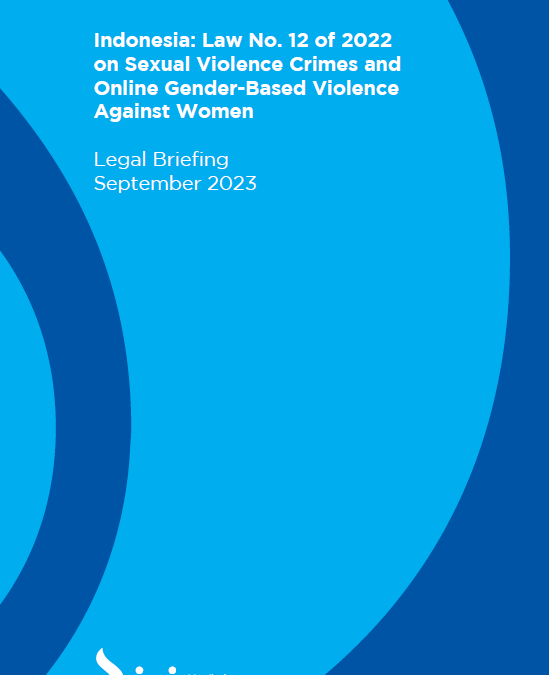
Sep 26, 2023
The Indonesian authorities should ensure that women are effectively protected against online gender-based violence (OGBV) by implementing Law No. 12 of 2022 on Sexual Violence Crimes (Law 12/2022) and by addressing its shortcomings in line with international human rights law, the International Commission of Jurists (ICJ) highlighted in a briefing paper published today.
In a thirty-page briefing paper analyzing Law 12/2022, the ICJ identified gaps in the recently adopted Law 12/2022 relating to OGBV, and addressed recommendations to the Indonesian authorities on how to enhance the country’s ability to fulfill its international human rights law obligations to prevent and punish acts of OGBV.
“While Law 12/2022 represents a step in the right direction with respect to preventing and punishing OGBV against women in Indonesia, much still needs to be done to effectively protect women against all forms of OGBV, and to ensure that victims/survivors are able to access justice and legal remedies,” said Daron Tan, ICJ Associate International Legal Adviser.
Law 12/2022 entered into force in May 2022. The law criminalizes acts of sexual violence, including certain manifestations of OGBV. Among other things, the legislation also guarantees legal protection and remedies for victims/survivors of certain acts of sexual violence.
The ICJ’s briefing paper underscores that acts of OGBV violate the human rights of victims/survivors guaranteed under international human rights law. Indonesia has international human rights law obligations to prevent acts of OGBV, and to investigate, prosecute and punish them when they occur.
The briefing paper identifies certain shortcomings in Law 12/2022 requiring improvement so as to more effectively address OGBV, including the limited scope of OGBV acts covered by the legislation and the need to ensure its gender-sensitive implementation.
“The Governmental Regulations to implement Law 12/2022, which are currently being formulated with the aim of adopting them before the end of 2023, present a great opportunity for the Indonesian authorities to ensure that Law 12/2022 may better address acts of OGBV in line with the country’s legal obligations under international human rights law and standards,” added Yogi Bratajaya, ICJ Legal Consultant.
The ICJ’s briefing paper also analyzes the human rights responsibilities of technological companies, such as Meta, X (formerly Twitter) and TikTok, to prevent and address acts of OGBV. These companies’ activities may risk enabling acts of OGBV against women, including through the algorithmic amplification of content amounting to or disclosing evidence of OGBV on their platforms.
The briefing paper provides concrete recommendations to the Indonesian authorities on how they can improve the provisions and implementation of Law 12/2022 in line with international human rights law to effectively protect women against OGBV. The briefing paper also provides recommendations to tech companies on how they can fulfil their responsibilities under international human rights standards to prevent acts of OGBV and effectively address them when they occur.
Briefing Paper Launch
The briefing paper was launched on 26 September 2023. The launch included a panel discussion, which drew together women’s rights organizations, journalists, lawyers and tech companies’ representatives to discuss the ongoing efforts in Indonesia to protect women against OGBV and ensure access to justice for victims/survivors.
The panelists at the launch were:
- Daron Tan, Associate International Legal Adviser, ICJ;
- Yogi Bratajaya, Legal Consultant, ICJ;
- Andy Yetriyani, Head of the National Commission on Violence Against Women (Komnas Perempuan);
- Uli Pangaribuan, Director of the Legal Aid Foundation of the Association of Women for Justice Jakarta (LBH APIK Jakarta);
- Endy Bayuni, Member of the Meta Oversight Board; and
- Nani Afrida, Editor in Chief, Independen.id
Download
The full briefing paper is available in English and Bahasa Indonesia (PDF). This press release is available in Bahasa Indonesia here.
Contact
Daron Tan, ICJ Associate International Legal Adviser, e: daron.tan@icj.org
Yogi Bratajaya, ICJ Legal Consultant, e: yogi.bratajaya@icj.org
Further reading
ICJ, “ICJ publishes guidance for laws to prevent and address online gender-based violence against women“, 19 May 2023
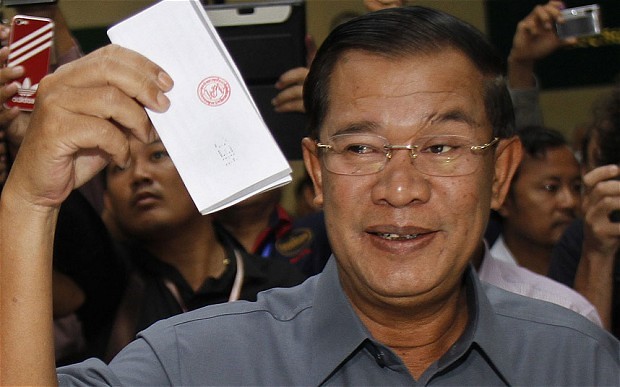
Sep 21, 2023
An opinion piece by Daron Tan, ICJ Associate International Legal Adviser, Asia and the Pacific Programme, published on Tech Policy Press on 20 September 2023.
On January 9, 2023, former Cambodian Prime Minister Hun Sen posted a video on Facebook where he threatened his political opponents with violence, which was escalated to Meta’s Oversight Board for its consideration. My organization, the International Commission of Jurists (ICJ), submitted a public comment to the Board on the case, highlighting the ongoing violence and crackdown by the authorities against perceived political opponents in Cambodia and the real risk of further human rights abuses and other harms if Meta did not take action.
The Oversight Board agreed and issued several recommendations, including that Meta suspend Hun Sen’s Facebook page and Instagram account for six months. However, Meta rejected several of the Board’s recommendations, including the recommendation to suspend the accounts, explaining that “suspending those accounts outside our regular enforcement framework would not be consistent with our policies, including our protocol on restricting accounts of public figures during civil unrest.”
Confused after reading Meta’s response? Me too. Meta’s explanations are perplexing and peppered with jargonistic references to its different policies. In essence, what Meta is saying (or at least, from what I understand) is:
- Meta does not think that Cambodia was/is in a situation of crisis under its so-called Crisis Policy Protocol. Thus, the company’s policy on restricting accounts of public figures during civil unrest will not apply.
- Using Meta’s ordinary rules, there is no basis to suspend Hun Sen’s account.
- Meta also refused to update the policy on public figures and civil unrest such that it may apply to Cambodia, where there is a long history of state violence and human rights violations. According to Meta, applying the policy to these situations could lead to indefinite suspensions for public figures.
Meta’s decision has drawn sharp rebuke from human rights groups. For instance, colleagues at Access Now underscored that Meta’s decision “sends a dangerous signal that [Hun Sen’s] rights-abusing speech will be tolerated on its platforms.”
I share these sentiments. Meta’s decision creates the expectation that there will be no accountability for Hun Sen’s longstanding abuse of Meta’s platforms to threaten and incite violence against his real or perceived opponents. Meta has indicated that continued violations of its policies will result in restrictions, but what about the abuse that has already occurred?
Meta’s decision ultimately points to a fundamental issue of how its rules are, in the first place, constructed with overly expansive language, granting Meta significant latitude to do as they please on an ad hoc basis, unencumbered by consistent application of normative constraints. Furthermore, this decision illustrates how the enforcement of Meta’s Community Standards is, like in many other instances, shrouded in secrecy.
De facto impunity for sustained human rights violations
Meta’s decision now creates two separate enforcement regimes for when a public figure incites or threatens violence online. If this happens during what Meta considers to be a situation of sudden civil unrest and violence, Meta may restrict accounts for longer periods of time. However, if this has been going on for an “indeterminate period of time” – which, arguably, makes the situation far more serious than a one-off instance of violence – then Meta’s ordinary rules apply, with a far laxer restriction framework (e.g., ten or more strikes will result in a 30-day restriction). Is Meta effectively encouraging authoritarian regimes to engage in a “history of state violence or human rights restrictions” for an “indeterminate period of time” by allowing them to escape suspension?
In applying Meta’s ordinary penalty framework, it is not apparent why Hun Sen’s repeated violations have not attracted stricter sanctions beyond just removing the January 9 video, irrespective of whether suspension might be deemed a disproportionate and unnecessary measure. Hun Sen’s January 9 video that threatens and incites violence clearly should qualify as violating Meta’s “more severe policies” and attract stricter penalties. The violation should be seen as one of particular egregiousness given that it was not an isolated incident: the Oversight Board’s decision noted at least four instances of content being posted on Meta’s platforms containing threats, including threats of violence. It was also reported that Hun Sen reposted the January 9 video, which Meta removed but without “any visible repercussions.” Evidence suggests these violations resulted in offline physical violence.
Meta claimed that it applied “appropriate account-level penalties associated with that action.” Still, we have no idea what these penalties are and how they may be proportionate sanctions for Hun Sen’s actions. Optics matter, and this failure to explain the penalties, assuming there were any, has contributed to the impression that prominent figures using Meta’s platforms to threaten and incite violence will enjoy impunity and face no consequences for their conduct. Critically, without public knowledge of the penalties, what should be a main function of Meta’s regulatory regime, i.e., deterrence of such misconduct on its platforms, is effectively nullified.
Opaque enforcement and design of Meta’s rules
Meta’s decision also demonstrates a broader pattern of a lack of transparency in enforcing its rules. We do not know what “appropriate account-level penalties,” if any, have been imposed on Hun Sen and the reasoning behind them. We do not know why there is “currently not any basis to suspend Hun Sen’s account under [Meta’s] policies.” We do not know why and how Meta determined that Cambodia did not meet the “entry criteria threshold for crisis designation,” despite the multitude of submissions pointing in the opposite direction, including in the Board’s decision and the ICJ’s public comment to the Board.
The arbitrariness in Meta’s enforcement of its rules is directly linked with how the design of the rules themselves are overbroad and ambiguous, thus granting significant discretion when making decisions. These concerns extend to the ordinary enforcement framework, its newer policies on public figures and civil unrest, and its Crisis Policy Protocol. Ironically, the latter were updated in response to the case on former President Trump’s suspension from Facebook and were presumably aimed at introducing further transparency and consistency.
It is a general principle of law, known as the principle of legality, that rules must be formulated with sufficient precision in order to not grant unfettered discretion to those charged with their implementation – a principle that Meta’s rules patently fail to conform with. For instance, what are considered Meta’s “more severe policies” under its ordinary penalty regime? How is the risk of “imminent harm” under its Crisis Policy Protocol assessed, and what other factors determine what constitutes a crisis?
It is hard not to conclude that the jargon contained in these policies is being used as ex post facto justifications and conceptual smokescreens for inconsistent and opaque decisions.
The newsworthiness allowance
However, not all hope is lost, as Meta is still mulling over the feasibility of the Board’s recommendation to clearly state that “content that directly incites violence is not eligible for a newsworthiness allowance, subject to existing policy exceptions.” The ICJ had made an identical call in our public comment, in line with article 20(2) of the International Covenant on Civil and Political Rights, which requires the prohibition of incitement to violence, hostility, or discrimination.
At present, Meta’s newsworthiness allowance currently allows Meta to keep offensive content that violates its rules if it decides that the public interest value of keeping the content outweighs the risk of harm. This allowance was also a central tenet of the Board’s case, as Meta had been unsure whether Hun Sen’s violent speech should qualify as “newsworthy” and thus be left up.
It bears repeating that one of the very few limitations that is mandatory under international human rights law is the prohibition of incitement to violence. Meta’s current newsworthiness allowance allows for a loophole in this prohibition, which is, as above, exacerbated by the ambiguity and opacity in which the policy is currently constructed and enforced. If not applied with additional protections, this allowance would eviscerate the protection provided by human rights law against expression inciting violence. Meta’s decision to reject the Board’s recommendations to clarify its policy on public figures sets a dangerous precedent going forward.
However, there is still an opportunity for it to at least take some positive steps towards abiding by its human rights responsibility to respect human rights, in line with the UN Guiding Principles on Business and Human Rights, by revising its newsworthiness allowance in line with human rights law and standards. Having an unequivocal carve-out to its newsworthiness allowance for incitement to violence would at least allow Meta to be consistent when adjudicating similar violent content in the future, even if the rest of its rules and standards leave much to be desired.
First published on Tech Policy Press here.









